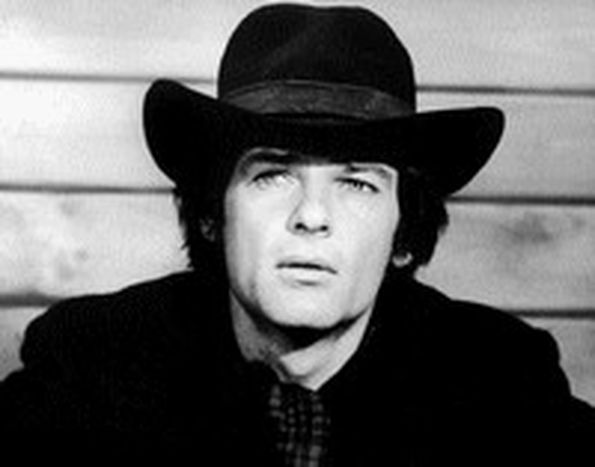
The Self-Styled Soviet Elvis
Published on
Translation by:
 zoe brogden
zoe brogden
In the West, an unknown artist, in the Eastern Block, a celebrated singer, actor and revolutionary. In The Red Elvis, director Leopold Grün goes on the trail of the curious and tragic life of a self-styled Soviet pop icon Dean Reed
'When he came to Russia, it was like some kind of holiday for us. We forgot all about the oppression.' For fans like Lana Davis, one of the opening speakers of a 90-minute documentary film, Dean Reed embodied an exotic promise of happiness and a welcome distraction from the drabness of socialist realism. The repression and lies of the political mantra melted away at the sight of Reed’s picture in the paper. Ironically, Reed himself travelled through the Soviet Union in the belief he would find himself in a free world. As we learn from the opening sequence of the documentary, this startling contradiction was to shadow the entire career of the man they called the Red Elvis.
Many years ago, Leopold Grün, a director from Dresden in the former socialist German Democratic Republic (GDR), was asked to explain who exactly Dean Reed was. His answer at the time was disappointingly empty; he couldn’t offer more information than that he was a peace singer who encountered a somewhat mysterious death. It was enough to awaken Grün’s curiosity, and, in his documentary film on the life of the self-proclaimed peace singer, which opened in cinemas across Germany on 2 August, a montage of eye witness statements, archive material and film footage paints the picture of a man torn between idealism and the fear of failure. On stage, Reed’s revolutionary ideal of freedom and justice was a considerable success, but his high ideals had curious consequences. Even now, no one can exactly work out this inoffensive appearing American and successful singer.
'He could have been a big star in the US. In that respect he differs little from Brad Pitt or Tom Cruise,' states Armin Müller-Stahl, an actor and fellow adopted son of Berlin, in his attempt to summarise Reed’s somewhat complicated biography. Instead, he chose the GDR as his homeland. 'We all asked ourselves: ‘what does he want here?’'. Just like the former head of the GDR government, Egon Krenz, or Reed’s second wife, Wiebke Reed, Isabell Allende, who knew Reed through her father, remembers Red Elvis’s performances.
But who was Reed, this cowboy-dressed nomad who travelled the world, befriended politicians such as Salvador Allende and Yasser Arafat and whose country rhythms were discussed with due tactfulness in GDR government circles?
Born in a small town in Colorado in 1938, Reed soon found himself in South America, where his record Our Summer Romance conquered the charts. Before long, Reed chose to advance his career with a political message, and as a ‘gringo’ (the nickname given by South Americans to white foreigners), championing the plight of the poor, he became a superstar behind the Iron Curtain. In 1972 the trained cowboy became an East German citizen, and his albums sold by the millions.
It wasn’t long however before this seemingly perfect soundtrack to a better world showed signs of wear and tear. As Reed - himself an opponent of military regimes - explained in a TV clip included in the film: 'I truly believe there are many ways to be a revolutionary, and that it’s not so outlandish to swap a gun for a guitar.' Shortly after, however, he was captured in a picture carrying a rifle in Lebanon.
Behind the stage persona, Grün paints the picture of a soul without profile. His failure to challenge the injustices of the East German regime is one aspect which stands in stark contrast to his public calls for justice. Even in his private life, the portrait emerges of a naïve idealist who ultimately failed to get to grips with the reality of his surroundings. His death still failed to make an impact on his legacy. In 1986 Reed was laid to rest in the Zeuthener Lake after taking his own life.
In Der Rote Elvis, Leopold Grün explores in greater depth the myth surrounding Dean Reed on many levels. The idealistic but naïve revolutionary stands side by side with the rise and fall of the star persona, the failed family man and husband. Without a comment by the director, the film lets the images and voices do all the talking. The result is the impression of a bridge builder, who - against all odds - manages to overcome borders thanks to his music, and to fire on his listeners in their strife for a more just world. Without wanting to give one-dimensional and exhaustive answers, Grün succeeds in displaying the complexity of the socialist superstar.
Translated from Elvis in Rot


